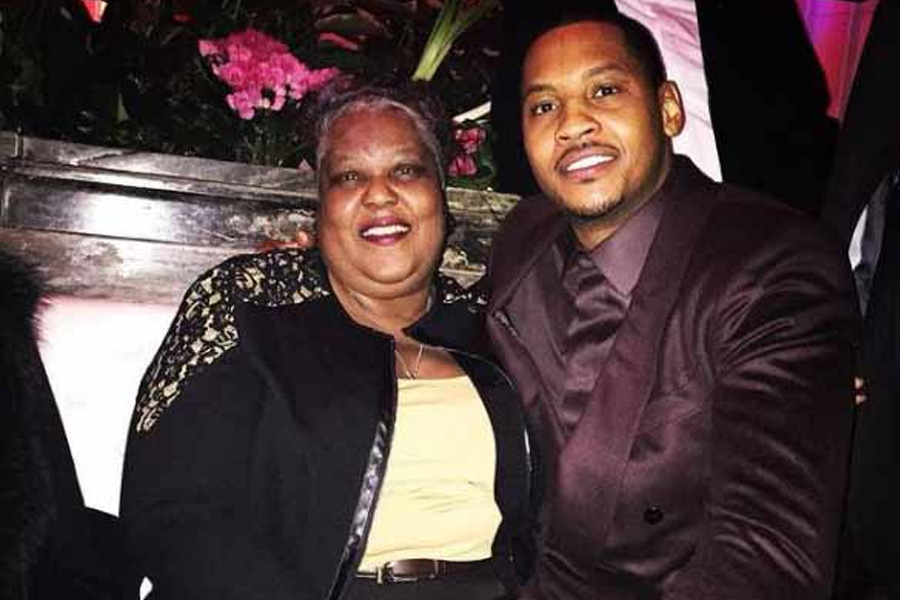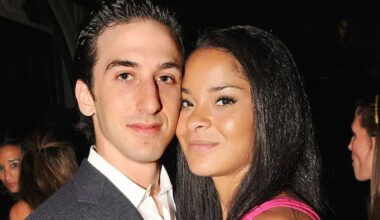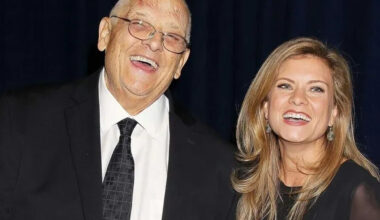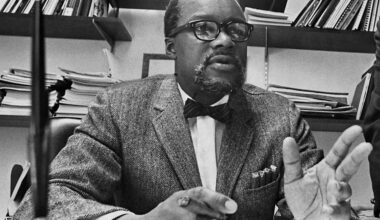Basic Information
| Field | Detail |
|---|---|
| Full Name | Carmelo Iriarte |
| Heritage | Puerto Rican; Afro-Latino lineage |
| Known For | Father of NBA Hall-of-Famer Carmelo Anthony; reported ties to Young Lords activism |
| Partner | Mary Anthony |
| Children | Carmelo Kyam Anthony; Mary Anthony’s household also included siblings Michelle, Wilford, Robert, and Daphne |
| Grandchildren | Kiyan Carmelo Anthony; Genesis Harlo Anthony |
| Cause of Death | Cancer |
| Time of Death | Mid-1980s (when his son Carmelo was about two years old) |
| Public Footprint | Limited; most information appears via family accounts and later reflections |
Note: Public reporting consistently names Carmelo as Mary Anthony’s youngest, raised with siblings Michelle, Wilford, Robert, and Daphne. Detailed vital records for Iriarte remain scarce in public archives.
Puerto Rican Roots and a Name That Endures
Carmelo Iriarte’s story is braided with the themes of migration, identity, and community. He is widely remembered through the lens of his son, Carmelo Anthony, who has spent adulthood retracing the contours of a father lost too soon. The Iriarte name carries Puerto Rican heritage — an Afro-Latino lineage threaded through island histories and New York neighborhoods where Puerto Rican culture took root. Even with sparse paperwork, the family narrative is vivid: a father whose background tethered his son to an identity he would grow into, year by year.
Names are heirlooms in their own right. The passing of “Carmelo” across generations signals continuity — a way for the past to speak in the present tense. For Anthony, embracing that name became a form of remembrance and reclamation, a quiet assertion that the story didn’t end in the mid-1980s.
Activism and the Young Lords Thread
Accounts of Iriarte often include a crucial detail: he moved in activist circles and has been described as having ties to the Young Lords, the Puerto Rican community organization that surged to prominence in the late 1960s and early 1970s. The Young Lords channeled energy into health clinics, education, and dignity for working-class Puerto Rican communities. Whether Iriarte was a front-line organizer or an allied poet-thinker, his association with that tradition anchors his memory in a lineage of civic courage.
For a son navigating the spotlight decades later, discovering that link has mattered. It reframed the father as more than a name on a family tree, instead as a figure connected to a movement that valued self-determination, culture, and collective action.
Family Life: Mary Anthony and the Children
The domestic scene that shapes most public recollections centers on Mary Anthony, a mother who shouldered the grind after Iriarte’s death. Carmelo Anthony, born in 1984, grew up the youngest in a busy household that included siblings Michelle, Wilford, Robert, and Daphne. The family’s journey traversed New York and Baltimore — neighborhoods where basketball courts doubled as classrooms and safe harbors.
In that crucible, Mary was the constant, the day-to-day hero. But the family’s story also preserves Iriarte’s imprint — a Puerto Rican inheritance, a gentler whisper of activism and art — threads that would surface in Carmelo’s self-understanding as he matured from a scrawny kid with a jump shot into a global figure.
Loss, Absence, and the Echo That Shaped a Son
Carmelo Iriarte died of cancer when his son was about two years old. That kind of absence does not leave; it echoes. For Anthony, the early silence created questions that trailed him through adolescence and into stardom: Who was my father? What did he fight for? From whom do I draw this steadiness, this stubborn will?
Years later, when Anthony talks about identity, he often does so with the humility of a detective piecing together a story from fragments — a photo here, a relative’s recollection there. The process is painstaking and deeply human: learn what you can; honor what you find.
What Survives: Community, Words, and the Work of Memory
Some remembrances portray Iriarte as a man of words — a poet’s sensibility around community and justice. Whether or not notebooks survived, the evidence lies in what endured: a son animated by pride in Puerto Rican heritage, attuned to the ways culture can nurture and organize, and drawn to efforts that uplift neighborhoods much like the ones that raised him.
Legacy, here, is not measured in plaques or payrolls. It lives in intangibles: in the cadence of a surname announced from a Hall-of-Fame stage; in a flag draped across a shoulder; in a young athlete’s decision to ask his elders for stories rather than settle for silence.
A Concise Timeline of Public Milestones
| Year | Event |
|---|---|
| 1984 | Birth of Carmelo Kyam Anthony in New York City. |
| Mid-1980s | Death of Carmelo Iriarte from cancer; Carmelo is about two years old. |
| 2003 | Carmelo Anthony is drafted third overall into the NBA, amplifying public interest in his family story. |
| 2010s–2020s | Anthony speaks more openly about Puerto Rican heritage and his father’s activist ties. |
| 2025 | Hall-of-Fame recognition for Anthony, with tributes underscoring his father’s influence and name. |
The Next Generation
The Iriarte-Anthony line continues through Carmelo’s children, Kiyan and Genesis. Kiyan, a high-profile basketball prospect, carries forward the athletic strand of the family’s story, while Genesis symbolizes the broader continuity of love and lineage that outlasts even the longest shadows.
Family, in this frame, becomes both compass and chronicle. It points the way, then records how far you’ve traveled.
What We Know — and What Remains Private
Much of Iriarte’s life eludes public documentation. There is no widely circulated resume, no detailed obituary, no archive of published works. The scarcity is a reminder that many families, especially in immigrant and working-class communities, preserve their histories orally and intimately. Respecting those boundaries matters.
Still, the essentials are clear: a Puerto Rican father, gone too soon; a mother who kept the family upright; a son who insisted on learning his origin story, then carried it with him onto the world’s grandest stages.
Family Table: Core Relationships at a Glance
| Person | Relationship to Carmelo Iriarte | Notable Details |
|---|---|---|
| Mary Anthony | Partner | Raised the family after Iriarte’s passing; mother of Carmelo Anthony. |
| Carmelo Kyam Anthony | Son | NBA Hall-of-Famer; born 1984; public voice for Puerto Rican heritage. |
| Michelle Anthony | Family (sibling in household) | Part of Carmelo Anthony’s immediate family growing up. |
| Wilford Anthony | Family (sibling in household) | Part of Carmelo Anthony’s immediate family growing up. |
| Robert Anthony | Family (sibling in household) | Part of Carmelo Anthony’s immediate family growing up. |
| Daphne Anthony | Family (sibling in household) | Part of Carmelo Anthony’s immediate family growing up. |
| Kiyan Carmelo Anthony | Grandson | Next-generation athlete. |
| Genesis Harlo Anthony | Granddaughter | Youngest branch of the family tree. |
FAQ
Who was Carmelo Iriarte?
He was the Puerto Rican father of NBA legend Carmelo Anthony and is remembered for activist ties and cultural pride.
How did Carmelo Iriarte die?
He died of cancer in the mid-1980s when his son Carmelo was about two.
Was Carmelo Iriarte a member of the Young Lords?
He has been described as having ties to the Young Lords; the precise role is not publicly documented in detail.
Who is Mary Anthony?
She is Carmelo Anthony’s mother and Iriarte’s partner, the anchor who raised the family after his passing.
Who are Carmelo Iriarte’s children?
Carmelo Anthony is his publicly known child; Carmelo grew up with siblings Michelle, Wilford, Robert, and Daphne in Mary Anthony’s household.
Where did the family live?
The family’s story spans New York and Baltimore, with formative years on urban courts and in tight-knit neighborhoods.
What is known about Iriarte’s career?
There is no widely documented career record; he is most often linked to activism and remembered through family accounts.
What is Iriarte’s legacy today?
It lives in his son’s embrace of Puerto Rican identity, public tributes to family, and the values passed down to the next generation.



